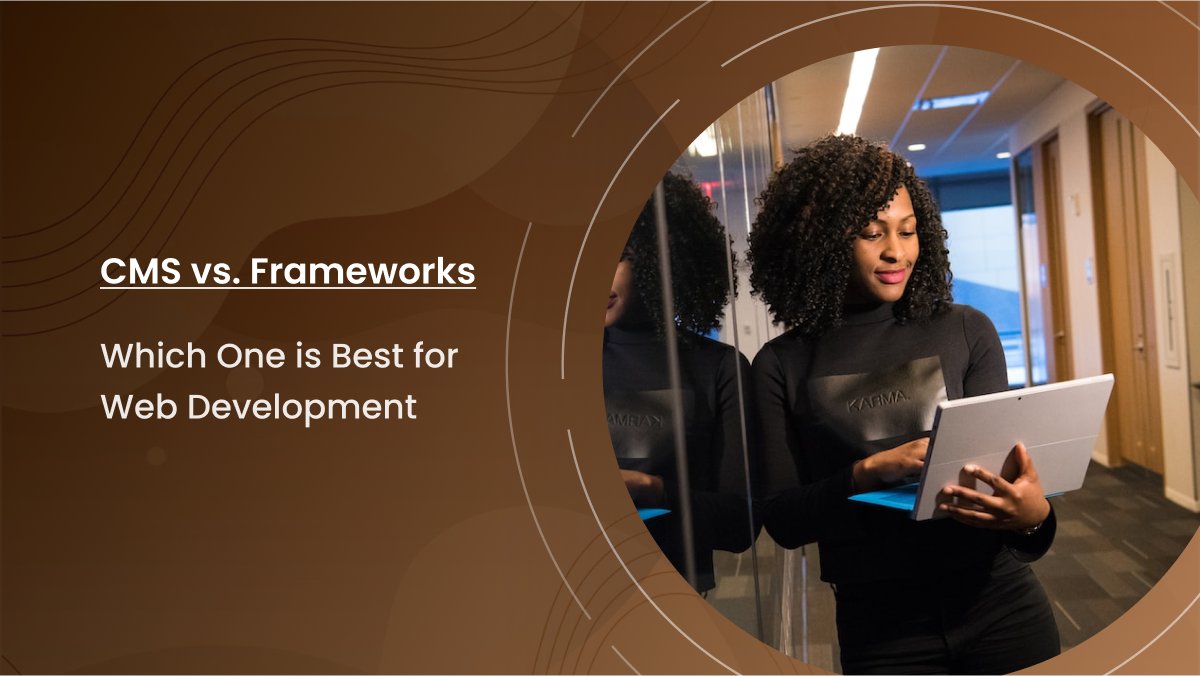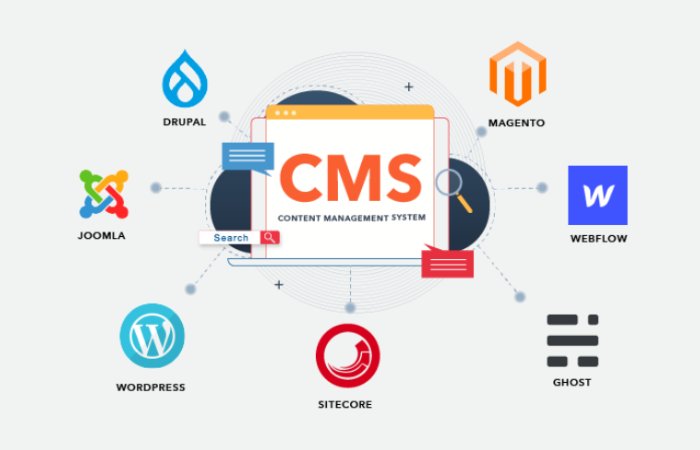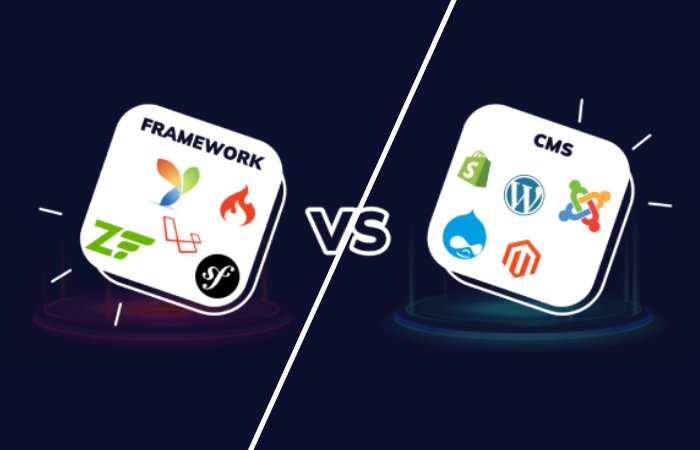
19 Sep CMS vs. Frameworks – Ideal Choice for Robust Web Development
While creating a new web application or project, many businesses are daunted by the question of selecting between a CMS and a Framework. Before deciding the answer to this question, it is important to know both these options clearly. If you make a wrong decision here, you may end up in problems later on and might have to re-build the application with another option. This will increase the cost of your project, and time to market will also be affected.
In this article, we will understand what a CMS and Framework is. We will also discuss the key factors to consider while choosing any one of these, and at the end, we will conclude what is better for your needs.
So, let’s start with CMS.

What is CMS?
As the name suggests, a Content Management System is an application consisting of various features and functionality that can help manage and publish content for a website.
CMS comes with a content management application that is available to authorized users. Using the content management application module, the website’s content can be modified or created without the need for any new development work.
Apart from the content management application, the CMS also has a delivery module where all your content is shown to visitors. This is the front end of your CMS-powered website or application. Some famous content management systems include WordPress, Drupal, SharePoint, Magento, etc.
Having known about CMS, let’s understand what a framework is.
What is Framework?
A Framework is built on top of any specific language, providing modules and code packages that can be used together to build custom applications. Frameworks come with generic functionalities that are important for Web design and developing applications, and even the code is reusable so that it can be used anywhere across your apps.
When you use Frameworks, you can skip low-level implementations as the Framework already handles them, and you can focus on building high-quality business applications. Frameworks also have their own library support, which extends the functionalities provided by the Framework. Many times, libraries provide secured and tested functionalities that can be directly integrated into your applications, and this will decrease your app development times significantly.
As we have discussed both CMS and Frameworks, let’s have a look at the key factors to consider while choosing between the two.

Key Factors to Consider While Choosing a CMS vs a Framework
Security
Security is the prime concern when it comes to building any new web applications. Today, hackers are increasingly notorious for using new tools and technologies maliciously. Hence, it is highly important to have a secure application.
Many famous CMS used in web development are open-source, and this means that every bug and loophole is available for everyone to understand and exploit. If your application has not found a workaround for such vulnerable bugs, hackers can soon exploit such areas and compromise your web application’s security.
On the other hand, Frameworks allow you to develop apps independently, so you can also configure your security mechanisms. This customization of security mechanisms ensures that your apps are not predictable and cannot be compromised as easily as open-source CMS-based web apps.
Flexibility
When building a web application for business, everyone wants to build something unique that resembles their brand’s image and also becomes attached to their brand. Flexibility is important in developing and delivering robust web applications that can be customized with as many features as required.
When you use CMS for your applications, you are confined to using a certain set of features and functionalities that are pre-developed in the CMS. While popular CMS offerings provide various open-source plugins and modules, they are external and require code integrations to work correctly.
Compared to CMS, Frameworks provide a lot of flexibility when it comes to developing custom solutions. While libraries and helper modules are used in this, you can customize the functionality completely, and there are no limitations in this development method. Moreover, you can choose to include as many features as you want developed by your team to meet requirements and user demands.
Development time and budget
A CMS provides many generic functionalities for a website or web application. Due to this, the development efforts in building such applications are reduced. Most CMS projects require you to integrate different features to build your website, and as it is a low-effort job, the budget for such projects is also less.
Suppose you want to build a simple WordPress-powered website; you can get it done by only one developer, and that may not cost you more than $200 to $500. On the contrary, Frameworks are just reusable code pieces that can be used to build functionalities, and this often involves more development effort and time.
Most companies rely on Frameworks when they are working on customized and unique web development projects. Naturally, Framework-based development requires more than one developer on the team, and it takes more time to build and deploy the projects. Hence, the cost of building web apps is also higher.
Content management features
If you are working on a web development project where the end goal is to provide a way where an admin can modify, add, or delete items on the website on their own without the need for developers, you are better off working with CMS. These systems provide robust modules that help authorized users easily make website changes.
When you are using web app Frameworks, you have to develop modules that can help make changes to the website, which is an added effort in development. Moreover, that will be hard to change if the requirements change.
Hence, if your app is mainly concerned with product listings, blogs, or any such thing, CMS can provide awesome content management features.
Having known about the factors to consider while choosing between CMSs or Frameworks, let’s see what is better for you.
What is Better for You?
If you are looking for a personalized solution with the latest technologies, and budget is not a constraint for you, then Frameworks will always suit your needs. When you have your own team, building web projects with Frameworks will be easier and cost-effective in the long run.
In addition to that, if you require generic functionality in your web development projects and you have a limited budget, then CMS solutions will be better for you.
Vega Moon Technologies was incepted in the year 2015 with one specific goal in mind and that is to bring to life digital experiences that can give your business new heights of success and fame in the online world. Each day we strive to structure and strategize new high-end strategic web solutions to evolve further and earn ourselves the stature of a No.1 Web Design and Development Company in India.



 +91 93191 24877
+91 93191 24877






